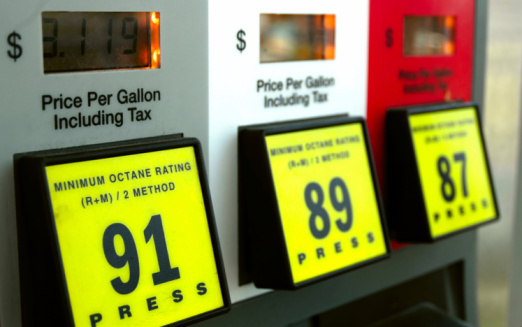The average price of a gallon of gasoline in the U.S. surged 11 cents to $3.84 from Thursday to Friday, according to AAA.
Gasoline hasn’t been this expensive since 2012. Russia’s ongoing invasion of Ukraine will likely send the price at the pump even higher. CNN reports:
Gas prices have soared 18 cents since Wednesday and 29 cents since Russia’s invasion of Ukraine eight days ago. Each of those increases marks the largest price hikes since Hurricane Katrina slammed into the US Gulf Coast in 2005, devastating the nation’s oil and gas industry, according to the Oil Price Information Service, which collects data from 140,000 gas stations nationwide for AAA’s price averages.
With prices rising so rapidly, a national average of $4 a gallon, as well as the record $4.11 set in 2008, will probably be reached soon.
“Fuel costs are up roughly a dollar from a year ago, industry data show, a blow for millions of Americans grappling with a broad increase in inflation,” notes CBS News.
The outlet adds:
Russia is a major exporter of crude oil, accounting for about 12% of the world’s supply. Any disruption to those exports is likely to drive prices at the pump higher for consumers almost everywhere, experts said.
“We think the Russia-Ukraine war will intensify global and U.S. inflation pressures by pushing up oil and gas prices,” Brian Coulton, chief economist with credit rating agency Fitch, said in an email.
Despite the sharp increase in gas prices causing a drag on consumer spending, analysts for now do not see the latest surge in oil prices as an immediate danger to U.S. economic recovery.
“While sustained higher energy prices pose downside risk to the outlook, we do not see them as enough to derail the recovery,” investment bank Barclays found in a March report.
The United States announced earlier this week that it would release millions of barrels of oil from its strategic stockpile to help ease prices. Other nations announced similar plans.
Democrats have been vexed by the high cost of gasoline since it’s frequently used as a crude yardstick of Americans’ purchasing power.
On Thursday, Sen. Joe Manchin (D-WV) said he’d “gladly pay 10 cents more a gallon” if it contributed to damaging Russia’s economy.



